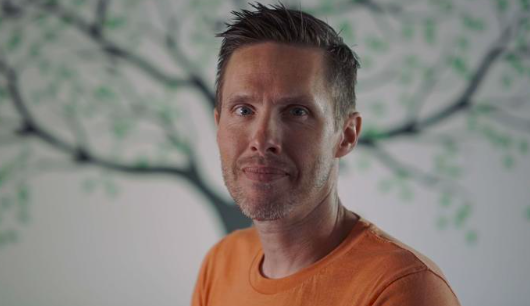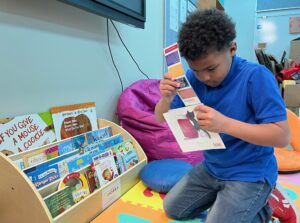5 Questions with Kirk Wester
By: Rhett Morgan
1. What is the concept behind Growing Together?
Neighborhoods deeply matter. Children grow successfully when their neighborhoods are vibrant, economically inclusive environments full of opportunity. The future of Tulsa and our kids rests upon the success of our neighborhoods.
To be successful, a child must have the right conditions to live, learn and thrive. A “community quarterback,” like Growing Together, creates and leads a plan, alongside residents, for these conditions to exist within vulnerable neighborhoods so that all children have access to a path that leads to growth, not only for themselves, but for their community and our city.
As the community quarterback, Growing Together:
• Ensures a high-quality, neighborhood-serving education pipeline, quality, mixed-income housing and a healthy, vibrant community
• Invites and empowers community members to lead the change and growth of their community
• Cultivates partnerships that have direct actions affecting children and families
• Mobilizes resources for partners to achieve the neighborhood vision
2. How do you get people to become good neighbors?
First, by being a good neighbor. Too often, we aren’t neighbors to the vulnerable. We try to help from afar. Second, I have found that most people want to connect and be a positive force. However, in vulnerable neighborhoods, that change is often imposed on them.
We work closely with our residents to help them to discover their voice and work to ensure that their voice is heard. There is tremendous insight and beauty in my neighborhood, though, from the outside, many only see what it lacks. When we live life alongside and seek to connect and use our power to create an equitable table, people, in my experience, usually rise to the occasion.
3. Why is it important to live among those whose lives you’re trying to impact?
Ultimately, justice isn’t a job, it is a lifestyle. When we become proximate to the vulnerable we begin to understand the true power that we have every day to impact those around us — for better and for worse. And though I do believe that everyone who cares about justice should at least consider where they live as being part of the equation, the true impact has most assuredly been on my family and me. Cultivating true friends among those who are different has been life-altering. Raising our kids among the vulnerable and watching them cultivate their own relationships in our community is truly awe-inspiring for my wife and me.
Ultimately, we talk a lot about struggling schools and challenging neighborhoods. We just believe that in order to see true change, those of us with the means have to invest ourselves, including our children, in the solution.
4. What is the biggest obstacle you’ve had to clear?
The assumption that organizations and programs are the solution to poverty. Programs are necessary but aren’t the answer. Growing Together is about changing the fundamental conditions that cause the need for programs and services to begin with, creating the same conditions and opportunities that we expect for our own children.
5. How do you define personal success?
To truly be the change I want to see. To understand the power and privilege that has been afforded to me and to use that understanding to change the way in which I and others live to bring about justice. Further, that my children are able to see this example and that it becomes the way in which they do life. That for them to live amongst those that are different is the new normal and when they grow up, they are a small part of ushering in a new way of being for their generation.



